TRANSIENCE THE INKWELL
 Edinburgh University Publishing Society Spring/ Summer edition
Edinburgh University Publishing Society Spring/ Summer edition

 Edinburgh University Publishing Society Spring/ Summer edition
Edinburgh University Publishing Society Spring/ Summer edition

The cool of the breeze, that weaves through the sunlight, strolls between my sneakers that tread the paths I led you down, slow, and considered, like a friend from childhood to the back garden.
The city has a better grip on you than I––it knows your face, stuck through its fences, peering into its secrets, and your voice between the wood, it picks the echo from among the buzzing of the mayflies.
Here is where we saw the miniature men in their miniature gardens, their dollhouse fields of carrot and tomato, and I told you of the small, cramped magics that enchant me when I’m young. You crane your neck into the woodland, peer through the leaves with almond eyes, the word foreign in your mouth: allotment.
Tangled in the air, and in your toffee hair are the words of passing runners: the rushed crackling of sputtered desolation, knots against the tongue, fishnet on the fingers, suspended in the shade, billowing, and far.
The city knows your scent, brushing as it does new petals in the trees, it knows you, this city, it knows and I forget––
the memories that once held you in them, mixed now into the dirt, their imagery inverted, revolving with the world, dissolving in the white, blossomed melancholy of the spring.
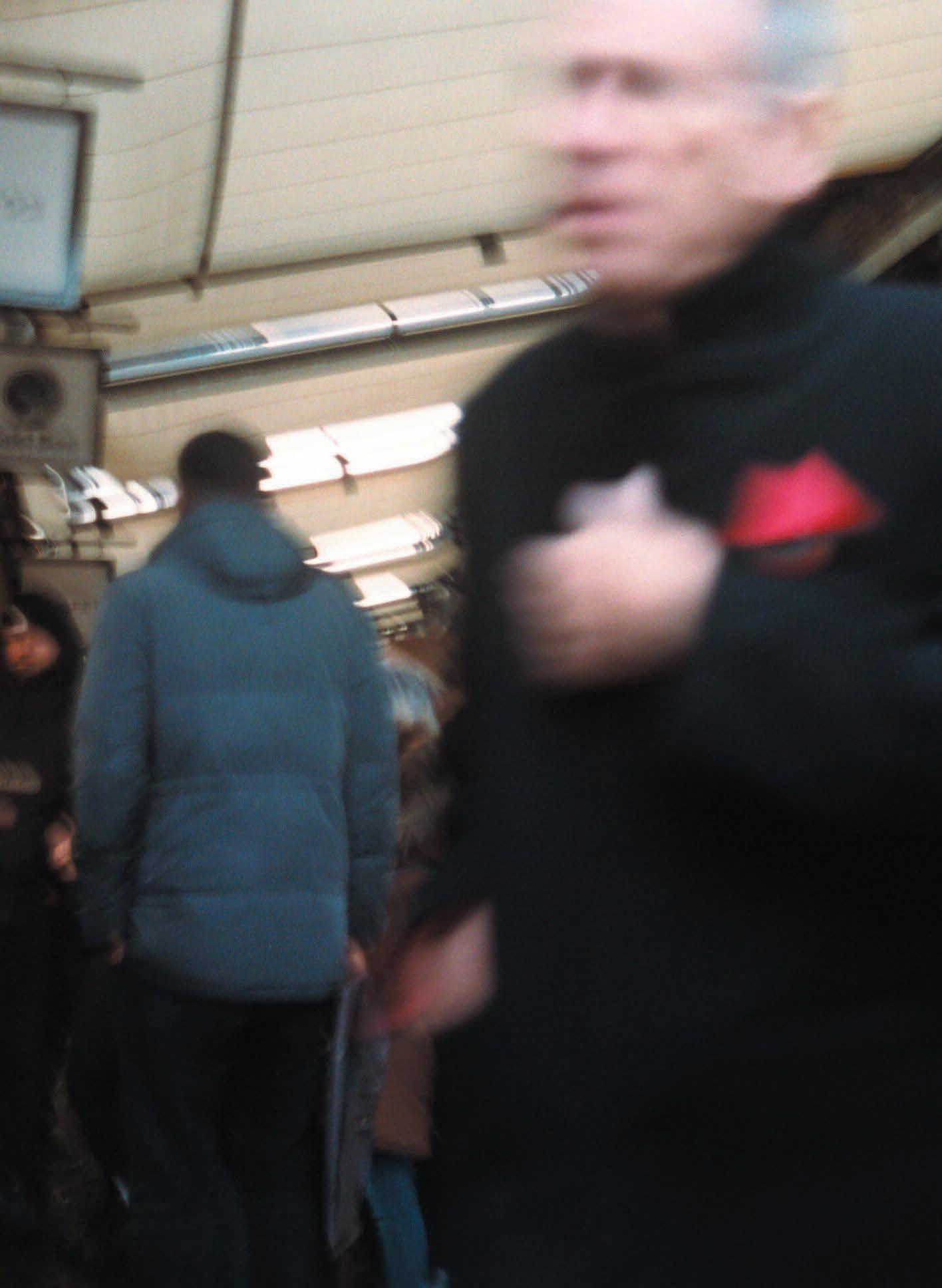
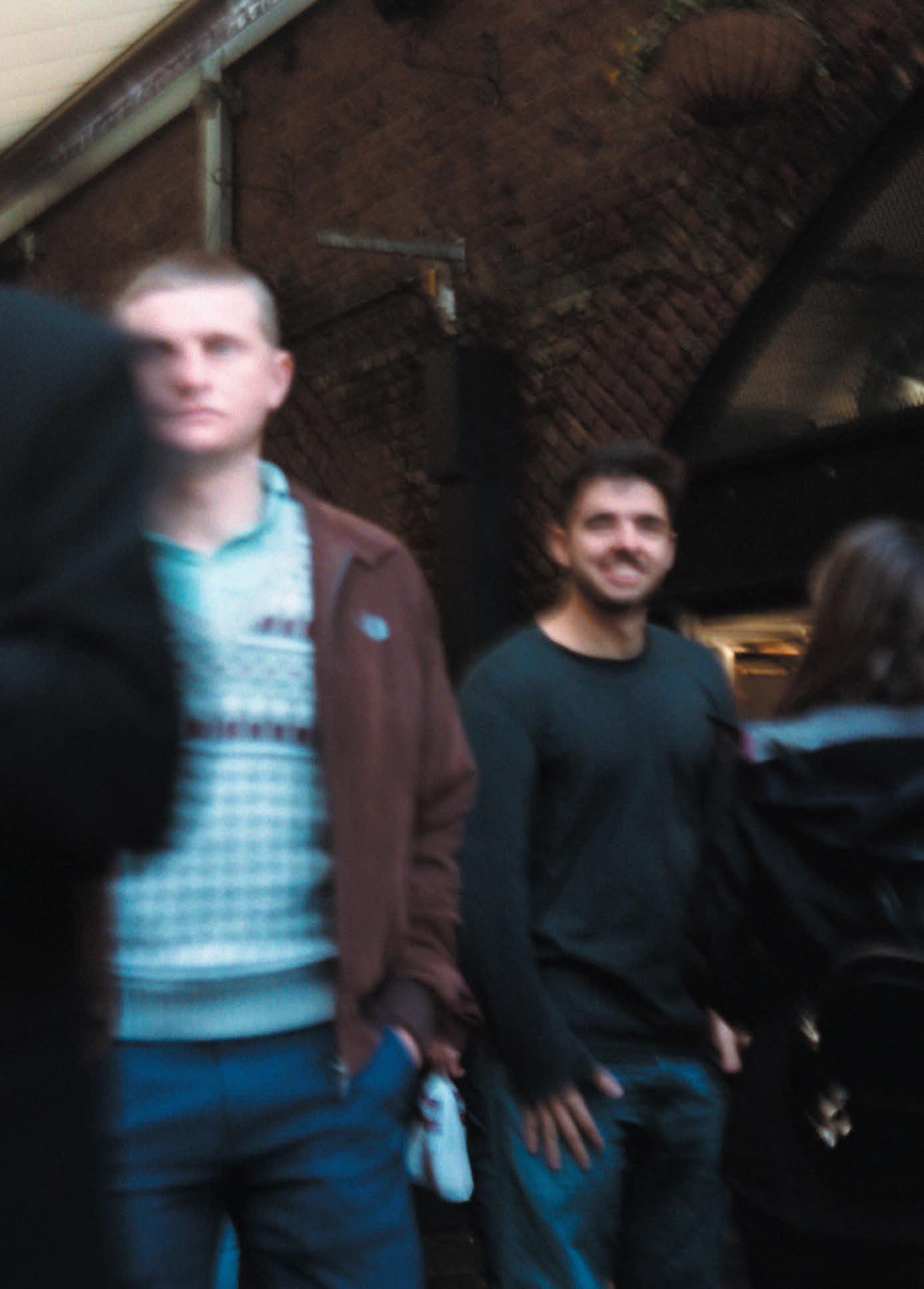
The image of your mother is scratched, not painted, upon your canvas: her frame sickly, smaller than you had ever seen it; her skin hanging off her body, barely clinging onto what little muscle she had left; her eyes, which had rolled back upon themselves, hoary; the small doll your daughter had brought her from a trip to Disney lying in her arms. Minnie’s absent smile had gifted a last look of joy to your mother’s face, although by that stage her smile was so thin you could scarcely trace it. You were sitting next to her bed, begging, longing for your tears to release in a thick downpour that would drown the cold, unfeeling sensation that consumed you. Nothing came. You sat with no tears, no words, no feeling.
Nothing.
When you found out she had cancer, you weren’t surprised. She had been in pain. A small part of you felt relieved, initially. You remember how just days before she begged you for two dozen paracetamol. She had told you: Ian, Ian please ready to go. You hadn’t the strength. You were relieved.
You were relieved until you walked into your kitchen and saw your daughter, back from university. A surprise. As she started cooking, the fragrant smells did nothing to distract you. You tried to dance around your mother, but the dance was always going to end with her. You told your daughter: Grandma has cancer. It’s everywhere. The doctors give her a couple of weeks. Your limbs ached from the weight of such news; words ran frantically from your soul, desperate to be shared, but they stopped at the last hurdle. The kitchen counter grew into a literal island between you and your daughter. You wanted to leap out, to hold her like you used to, to stroke her hair and tell her it’s going to be alright, but you couldn’t reach. Instead, when she asked you how you are, her eyes red with so much emotion, emotions yours could never express, you said: it is what it is.
That night you watched The Silent Gardener, two hours in which you and your family didn’t speak but were present. While watching Ralph Fiennes carefully pouring water over the blooming greenery, tracking his fingers along the leaves, you considered how parenting is rather like gardening: you sow the seeds into the earth, hoping for the sun and rain to bring forth life; you watch the explosion of colour as the smallest seeds grow into elegant lilies, violets, and roses. Over time nature take its course as the flowers grow on their own, leave their own seeds, and new ones appear without you even having to think about it. But then, one day, when you are gone, weeds form and destroy your creation from the inside out. It is still your garden, but it will never be the same.
Now, as you drive along the A7, your body slots back into a familiar routine. Rain attacks your windscreen with such force it
seems as if it’s meant for you. You slow down your car and lean forward, edging closer to the water. You see your fingers tap a sequence of buttons next to your dashboard. An automated voice announces, now calling Mum. Immediately, you realise your mistake, but you let the phone ring out. You consider leaving a voicemail, a confession, except you can’t find the words. Instead, you leave your body and enter the mind’s realm. You watch yourself: the stiffness of your arms at full extension, the whites of your knuckles as you grip the steering wheel, the robotic nature in which your left hand releases its grasp and moves to the gearstick, slotting into sixth. As you float above your body, you decide to travel back in time by a year to the same journey –one which you committed to weekly. This time, your mother answers: 019755
It’s me, Mum. Oh, Ian! How are you?
I’m good Mum, I’m good. Just driving home, how are you? I’m fine, just watching Strictly. How is it?
It’s good. Oh! Anton is just about to give his verdict – I like him as the new judge. I’ll call you later, okay? Okay, see you soon. You watch as you hang up and keep driving. You are angry with yourself. You should have asked her to pause the show, you should have asked her about Anton, you should have told her you loved her, but you didn’t. You travel forward, but only by six months.
019755
Hi Mum, it’s me.
Hi Ian, I didn’t know if you were going to call tonight. Yeah, sorry. I was a bit later getting out of the office. How are you?
I’m fine. Well, to be honest, my leg is really killing me. This bloody cut just won’t heal.
I know, Mum. We can go back to the doctors next week. They’re no use.
Well, that’s all we can do. You saw the service cut out as you were driving. You don’t call back. Instead, you watch yourself continue to drive, see the sides of your jaw tense, hear the brittle sound of your teeth grinding. Forward again, three months this time. Mum? Mum it’s me.
Initially, the phone brings silence. You see the confusion on your brow as you throw more and more words into the abyss, and nothing returns. Until, from the darkness, emerges a shrill cry which fills your car, penetrates your ears, and permeates your soul. The cry enters a diminuendo, reducing to nothing more than a faint whimper. It’s okay, Mum, I’m here. I’m here.
to tell someone it’s going to be okay when it isn’t? Why, when you have only just learned how to live with her, must you learn to live without her?
You return to your body. The rain has eased, and you pull over onto the hard shoulder. You phone your mother one last time and the automated voice returns, this time informing you that you are heading to voicemail.
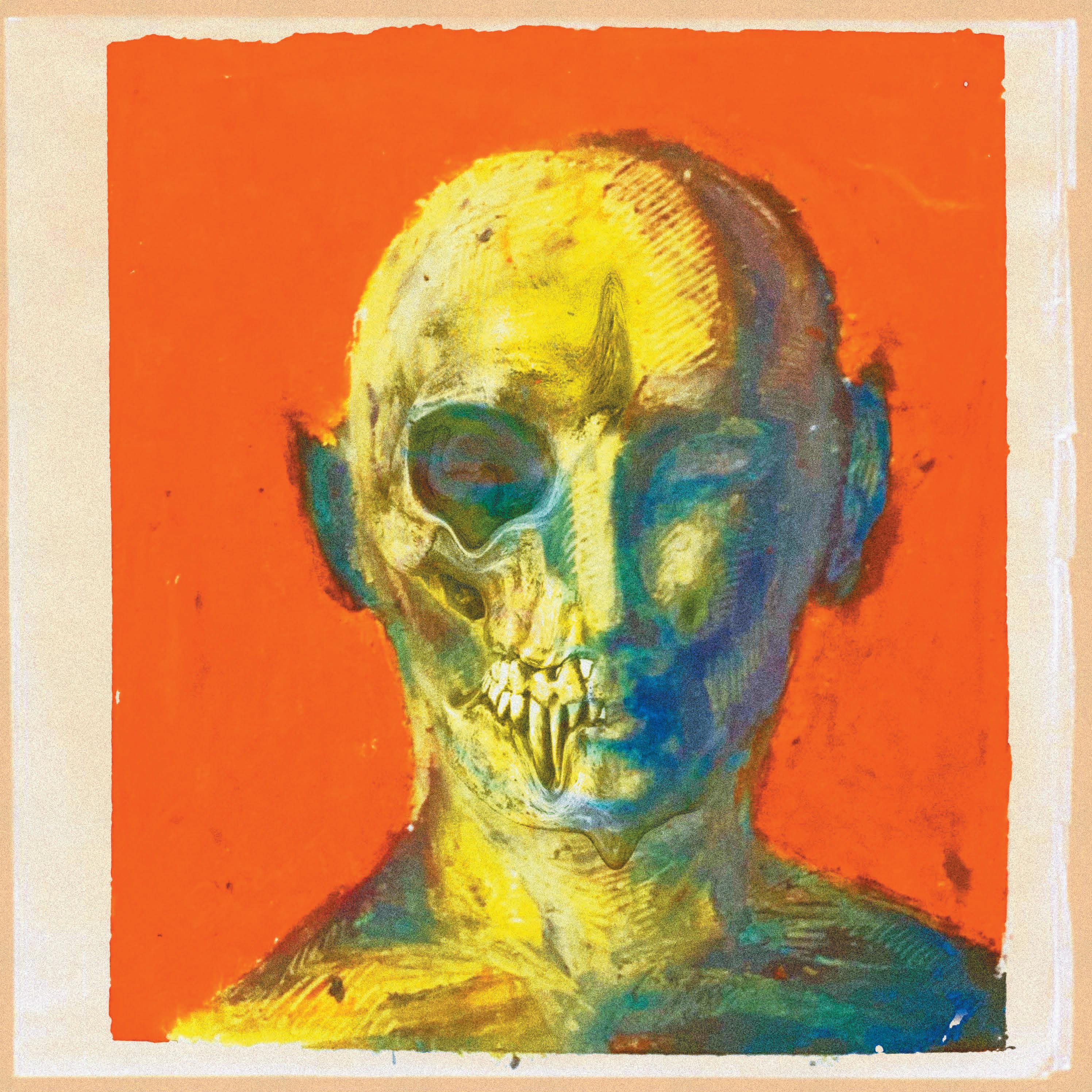 Painting by Sourya Patnaik @biggreenmaschines
Painting by Sourya Patnaik @biggreenmaschines
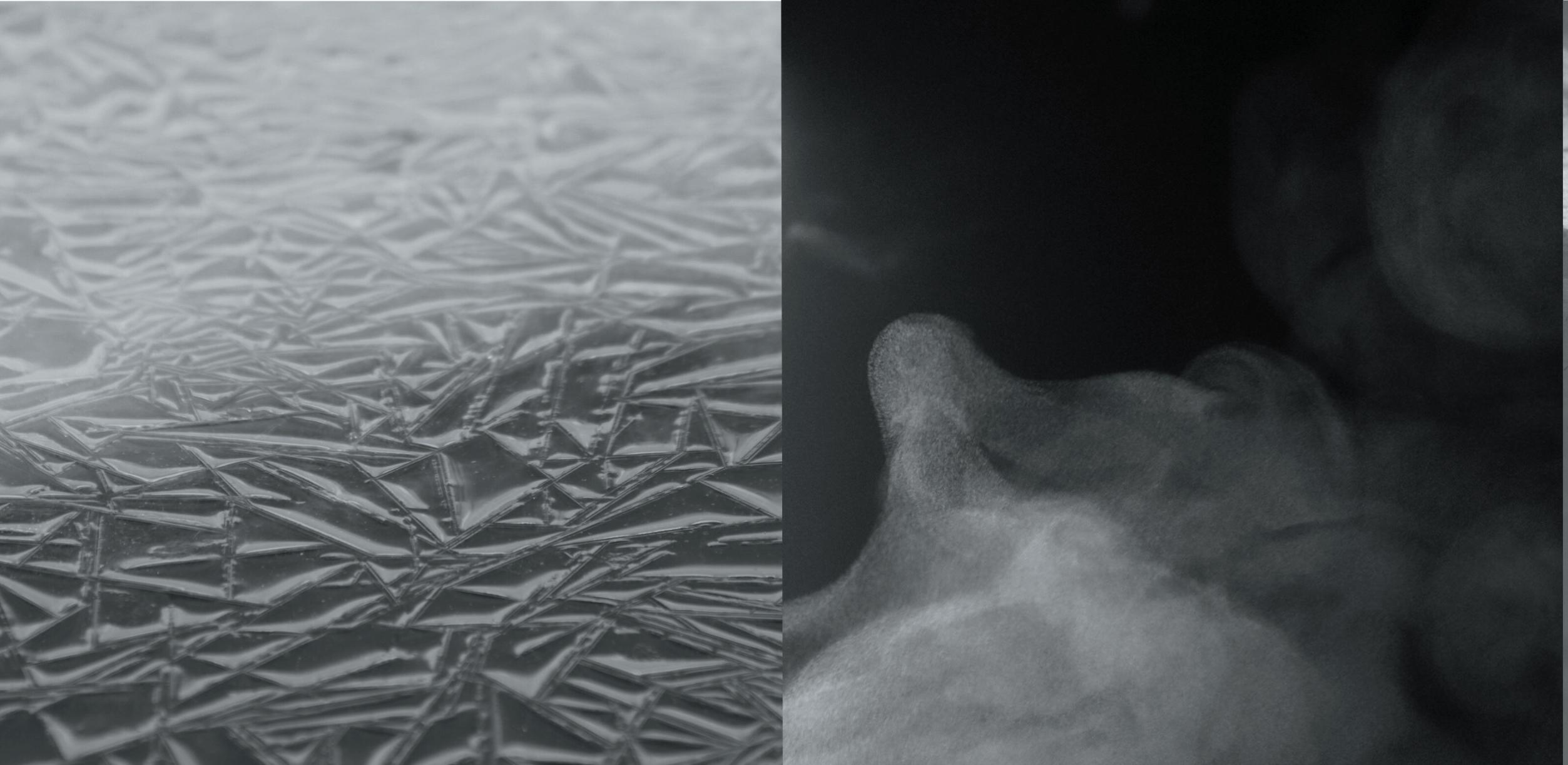
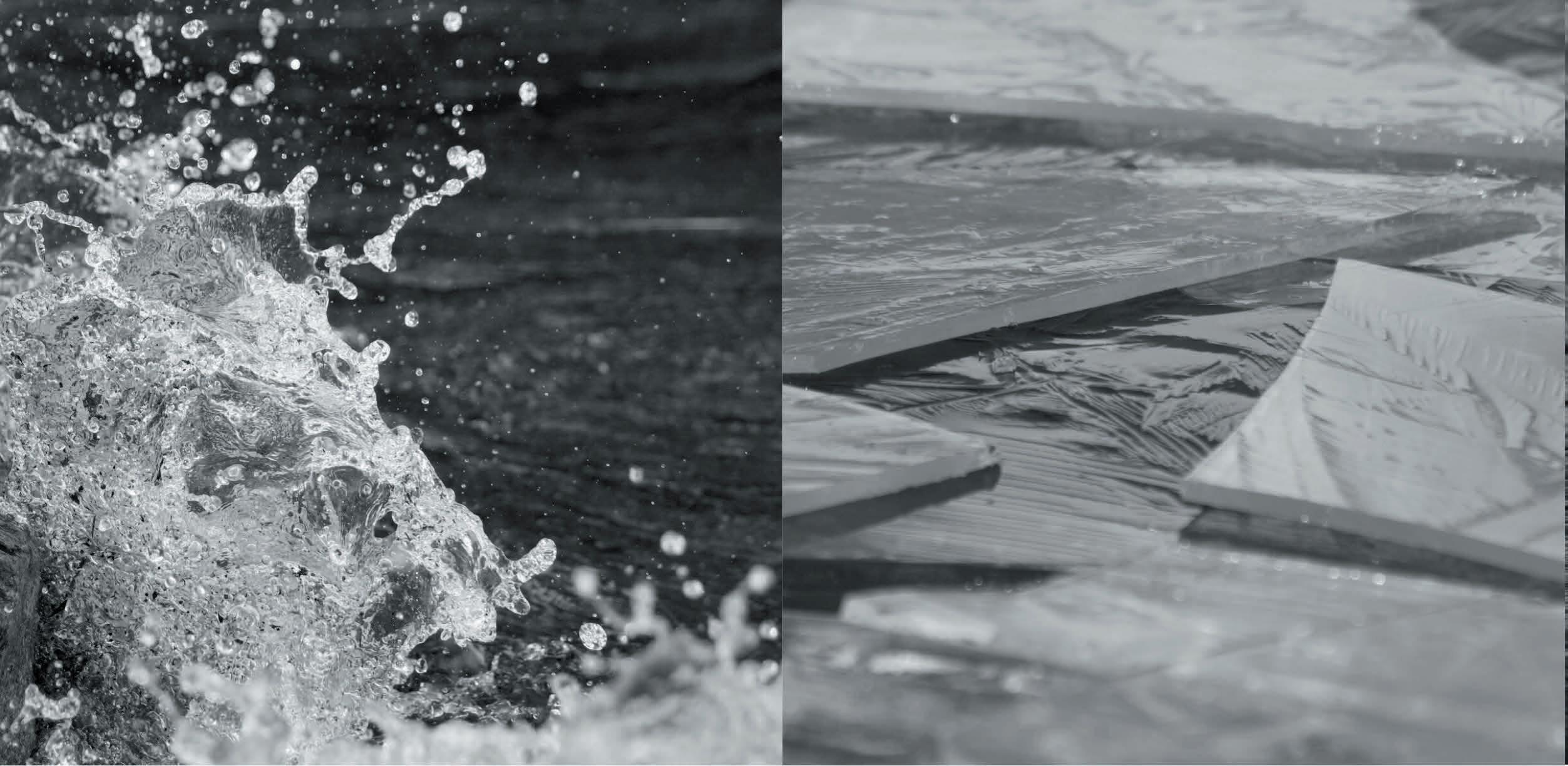
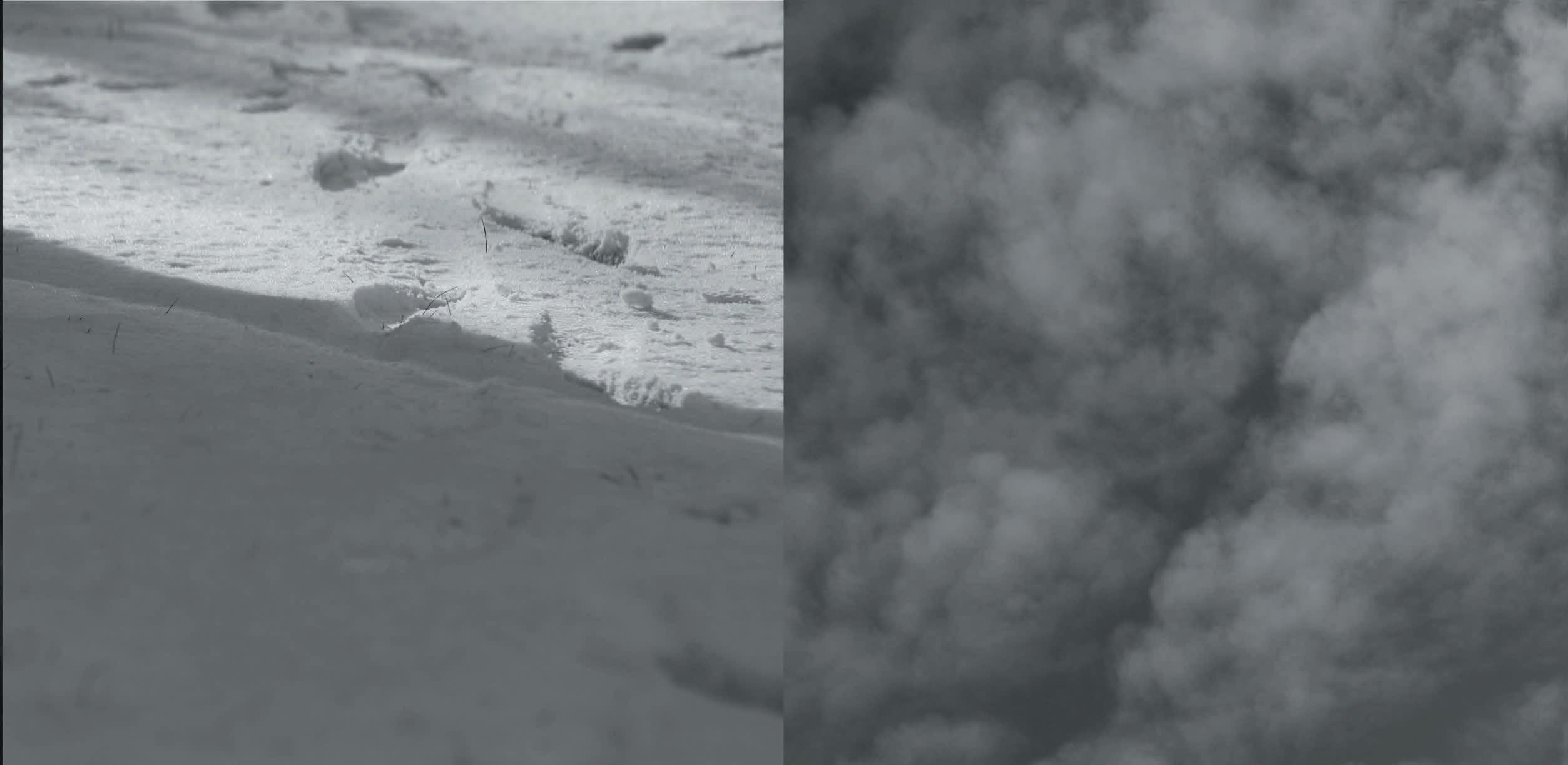
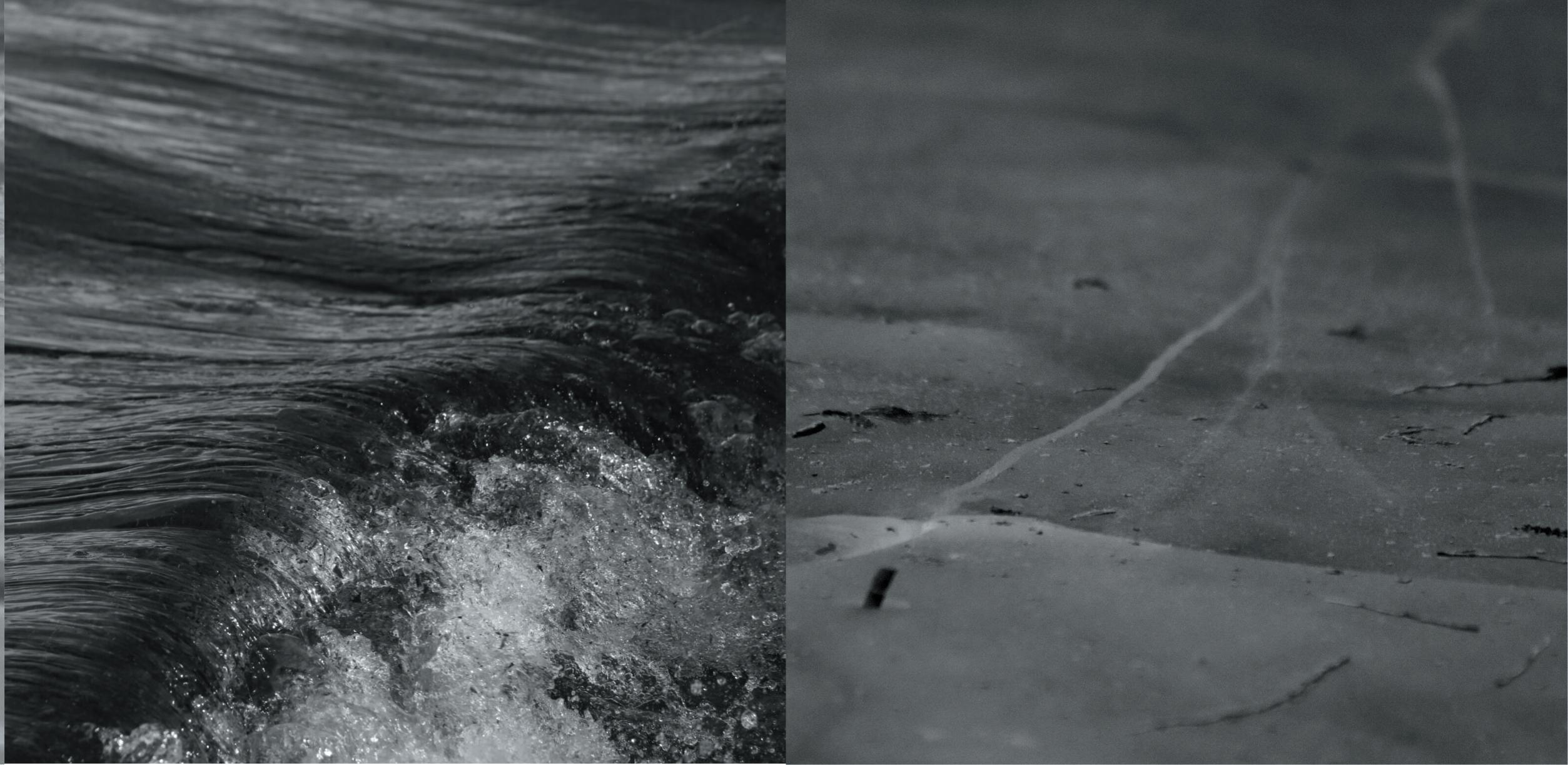

Let me see you they say they close their hand in a fist before they die, as the child that plays a game for two hours. how can you tell when someone is blessed? by kissing the surface.
under the bed the saints hide by little tempts of dust marking where they will sit. in the lungs in the eyes. his veins were copied by the trees the way they painted their branches in the sky.
it is a fortune to be squeezed in the middle. smoke on the wooden banisters, you held my hand in a fist. the smoke could never hold this the smoke too grey to really be the soul of a life that made that strayed unholy echoes of what one should do stand bow now pray pray knees fall stand keep keep breathe bow low soft stand soft speak do not speak do not forget move on forget walk and get out.
to take care of you coming around like once or ages prayed these are the best years still but down on one’s knees ti vedo dappertutto.
black on skin like soot the stains absorbed by the material the stains absorbed by the material the wet the snot the drugs the smoke the wet slop of breakfast when you fell to the floor.
does a mother ever stop being one? does a son forget?
when the phone rings and she says
 Photograph by Callum Osment @picsbycallum
Photograph by Callum Osment @picsbycallum
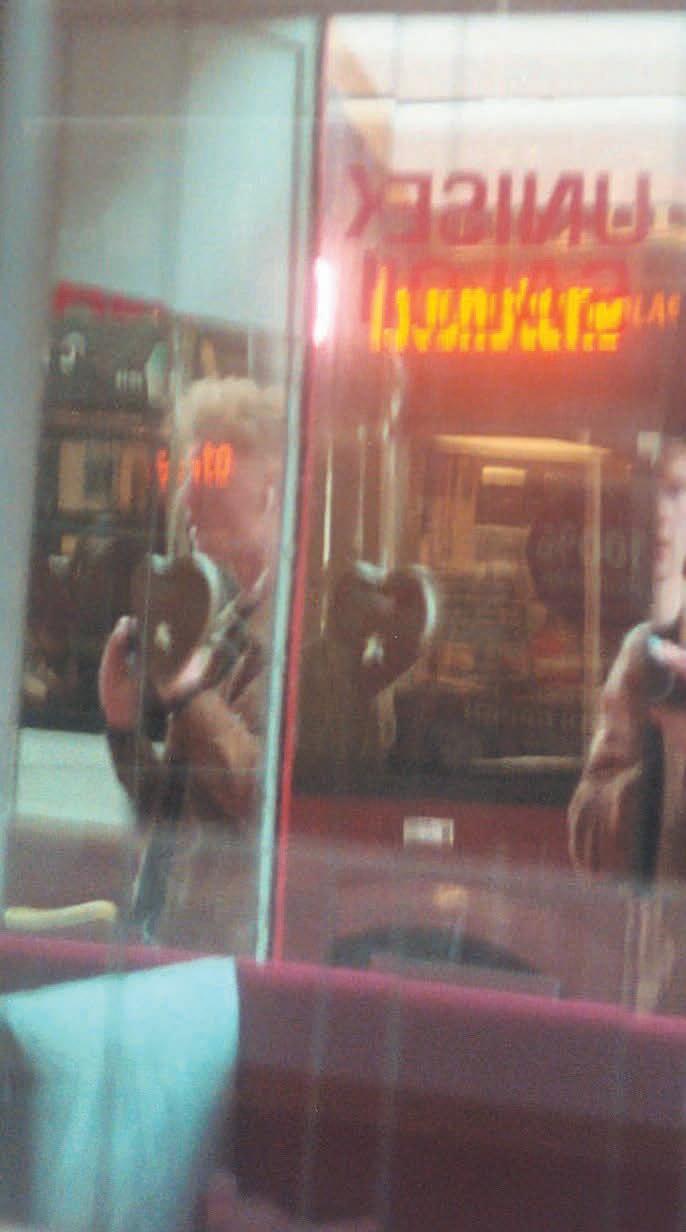
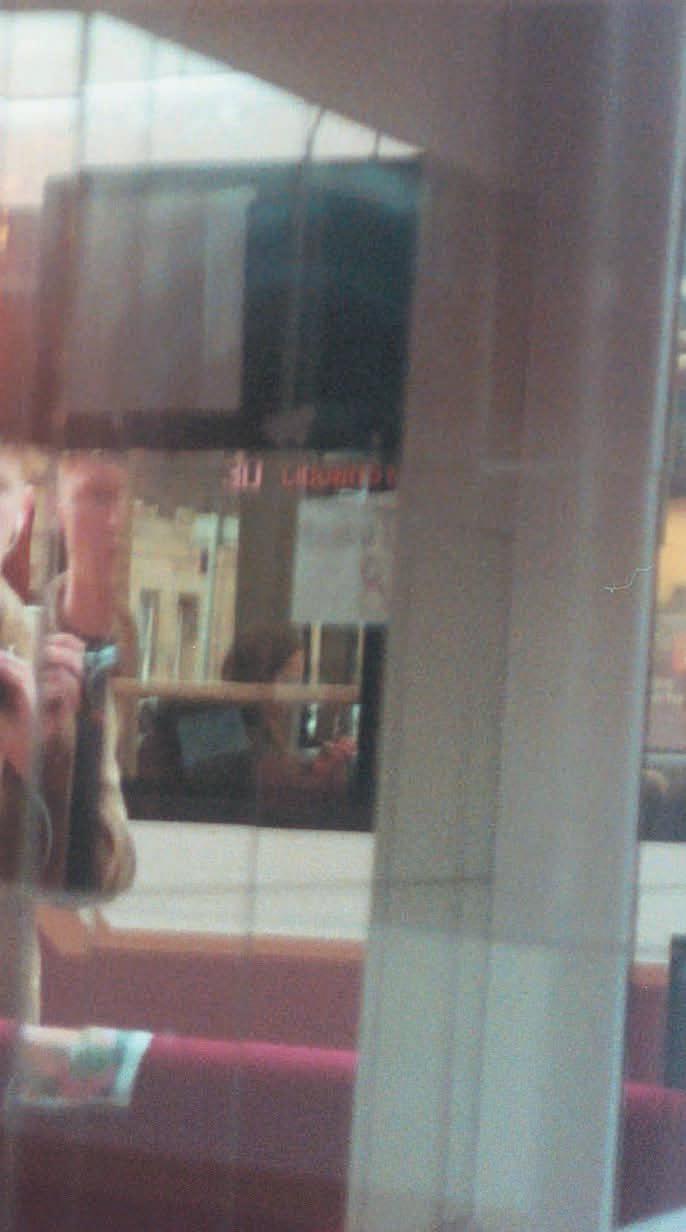
-You’re seriously not going to the graduation party? -I told you, i don’t like those guys anymore -ok, but it’s your graduation, it’s probably the last time you’re going to see them, right? -exactly, i’m never going to see them again, we’re just delaying the inevitable, if i cut them off now i’ll save us all the awkward messages further down the line -you know you sound like a psychopath, right? like that’s genuinely the sort of thing a psychopath would say…have you done it…the psychopath test…you know sometimes I genuinely think you might be a psychopath -psychopath, psychopath, psy-co-path, if you say it enough it stops sounding like a real word
The couple continue their descent down the hill towards the gallery. She nudges Him as they pass the gardens in front of the college, where a group of sullen looking men are taking down some festive decorations.
-guess christmas is over then -of course, it’s over, its january -we never take our decorations down till february -that’s much too late
The air is chilly and bites at their skin. They cling to each other, their designer jackets doing little to keep out the cold. Cath slips on a patch of ice, but Chris grips
her arm to keep her steady. She doesn’t thank him. -are you all packed? -don’t need to -don’t need to? -yeah, i’ll probably just throw all my stuff away -why? -don’t need it -so, all your books and records and clothes, you’re just gonna chuck them? -yeah, probably -psychopath -psy-co-path
Inside the gallery, the air tastes stale and artificial, the low thrum of the heating alongside the shuffling and
murmurs of the other visitors making their rounds. She feels for His hand, their two palms slotting neatly together, and then they set off. He stops to look at a painting of an older man wearing an army officer’s outfit. He disengages from Her, and examines the plaque next to it. He calls over to Her. She murmurs something indiscernible under her breath in response.
-do you think he got taken the piss out of at the time, it’s like he’s using an insta-filter, but like, in the 1800’s -haha.
murmurs of the other visitors making their rounds. She feels for His hand, their two palms slotting neatly together, and then they set off. He stops to look at a painting of an older man wearing an army officer’s outfit. He disengages from Her, and examines the plaque next to it. He calls over to Her. She murmurs something indiscernible under her breath in response.
-do you think he got taken the piss out of at the time, it’s like he’s using an insta-filter, but like, in the 1800’s -haha.
He turns to face Her. -what’s the matter now?
-i just don’t get why you’re not even going -you’re still on about the party, are you? -you lived with these guys for four years -3 years -huh?
-3 years, halls doesn’t count -ok fine, halls doesn’t count, 3 years, that’s still a long time
He scoffs and starts down the hall again, taking a renewed interest in each and every painting. She has forgotten why they even came here, since she hates art.
He doesn’t answer for a bit, leaving Her unsure if He


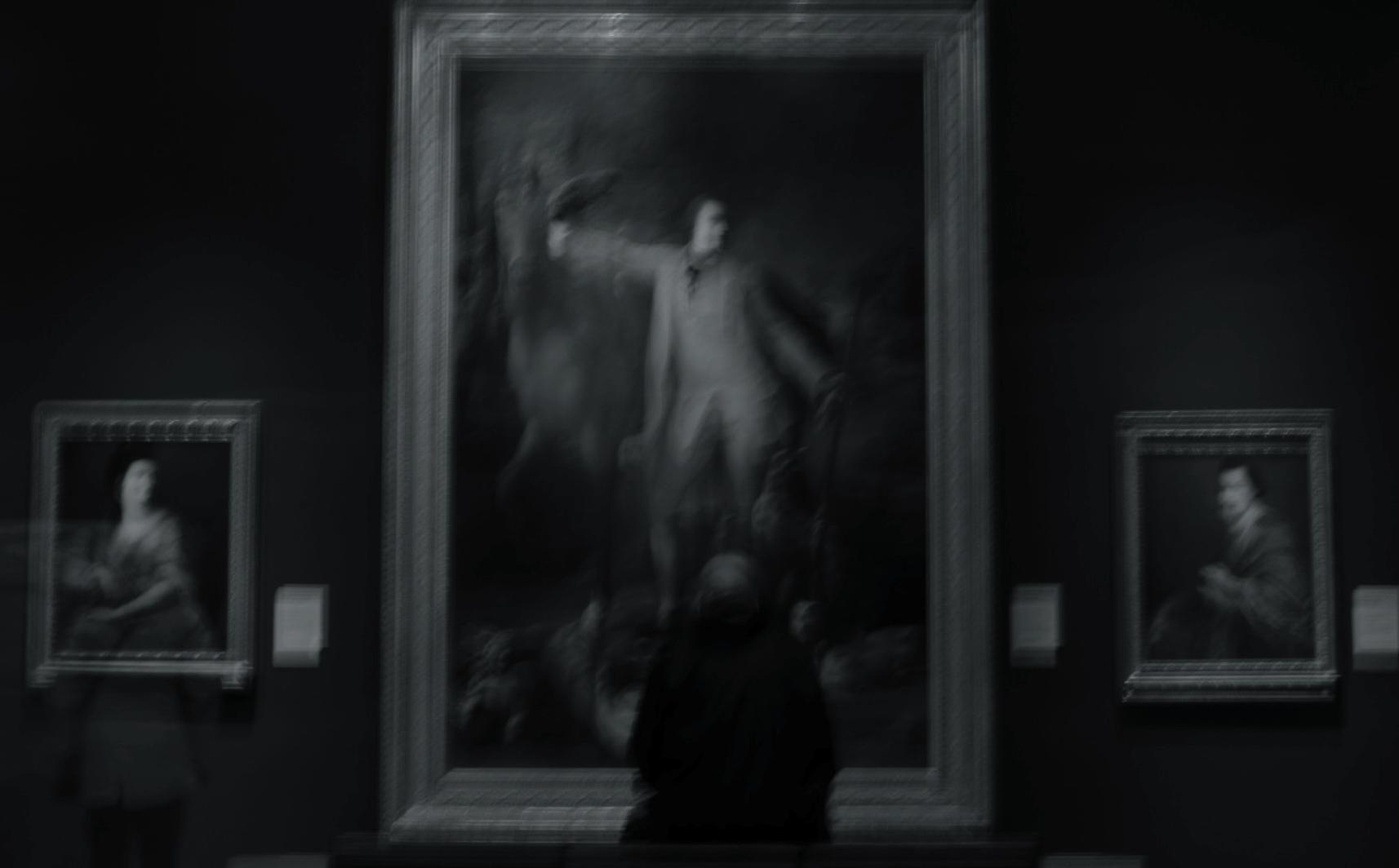
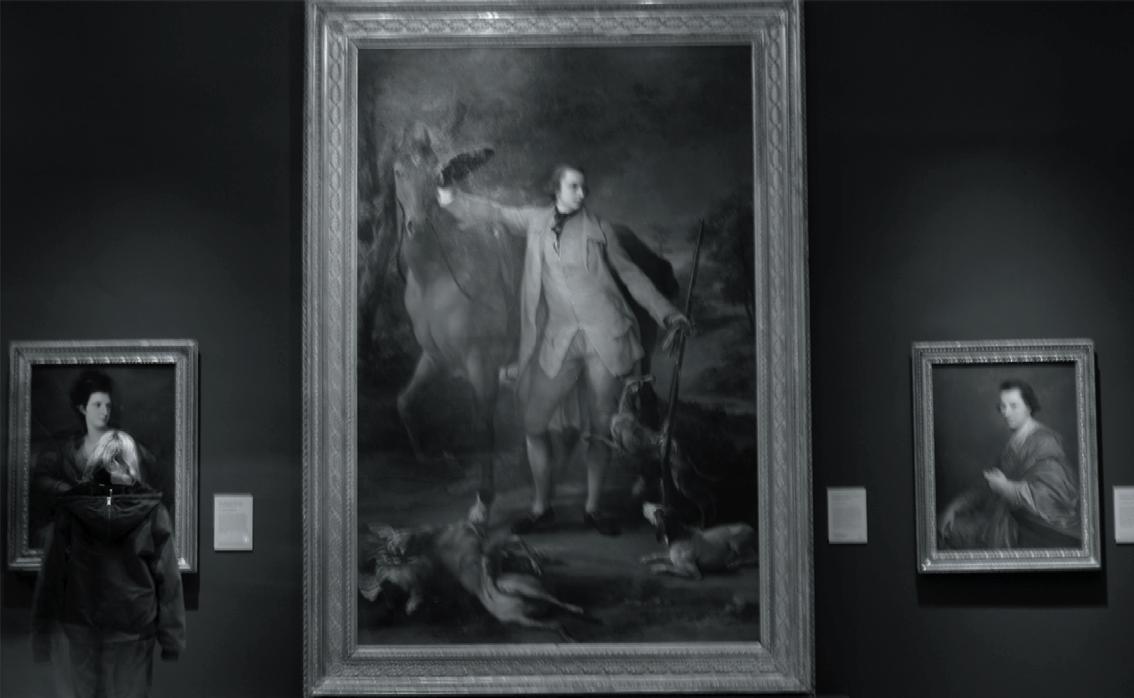
is mulling over his response or if He hasn’t heard Her. -hello? -yes?
-are you going to message me after uni? -why are you asking me this? -why aren’t you answering me?
One of the gallery attendants comes over to the pair and clears their throat. …can i help you with anything guys? -no, we’re fine thank you -actually (He cuts in), i was wondering if you could tell us a bit more about this piece?
She tries to catch His eye, but He ignores Her. He has always been good at neatly avoiding their conflicts. It is his worst quality, She thinks to herself.
…so, this is actually the gallery’s only van gogh, it’s a bit of an obscure one, not quite as internationally recognised, but we’re really proud of it…
As He nods along, She can tell His interest is totally feigned, He is not listening to the attendant whatsoever. No, She thinks, this is His worst quality, all of this pretending, and lying, that comes with a frightening amount of ease.
…you can actually see in the brushstrokes the genesis of his later works; this piece being taken from a time when he was really starting to come into his own as an artist… -right (He nods pointedly), and van gogh’s the one who cut off his ear right?
The attendant is taken aback for a second, then seems to catch His drift.
…aha, yes that’s mostly true, though that episode is but a small side note on a rich and storied career…
-funny though, innit …yes, i suppose it is…well, i think i’m being called away, don’t hesitate to let me know if you require… further assistance…
-ouch! -you’re so fucking rude -am i?
Their shared anger is only temporary, and despite their best efforts, they soon both begin to laugh.
-you know he probably spent years on an art history degree only for idiots like you to ignore him -shouldn’t have done art history then
She stifles another laugh, whilst He turns back to the Van Gogh.
-to be fair, it’s pretty wild that he went his whole life without being recognised, isn’t it? -i bet the people who had his paintings are glad they didn’t throw them away before he got famous, She says, and He shoots Her back a glance. -you know, when they were moving out of their flats? -just look at the paintings, will you?
The couple pass through the gallery silently now, drifting between different painters and periods, styles and schools, countries and collections. After a while it all just seems to merge into one long endless blur, a smear of multicoloured ink dragged across pristine white walls. No matter how slowly they both walk, the tall arch of the exit draws closer and closer, until they cannot help but reach its threshold.
They pause before the door, hesitantly pulling their gloves and hats back on.
-i will miss you
She senses the pair have reached a moment She has anticipated for so long, and yet its inevitability has made its arrival no less painful.
-i’ll miss you too, She replies, so softly it is almost imperceptible against the rattle of the heater, and the swinging of the door.
-i will still message you
She pulls Him towards her, as if sliding a blade in between her ribs, and clenches Him tightly.

-no, you won’t, and that’s OK.
Before He has time to respond, She takes His hand once more, and guides Him back out into the cold.

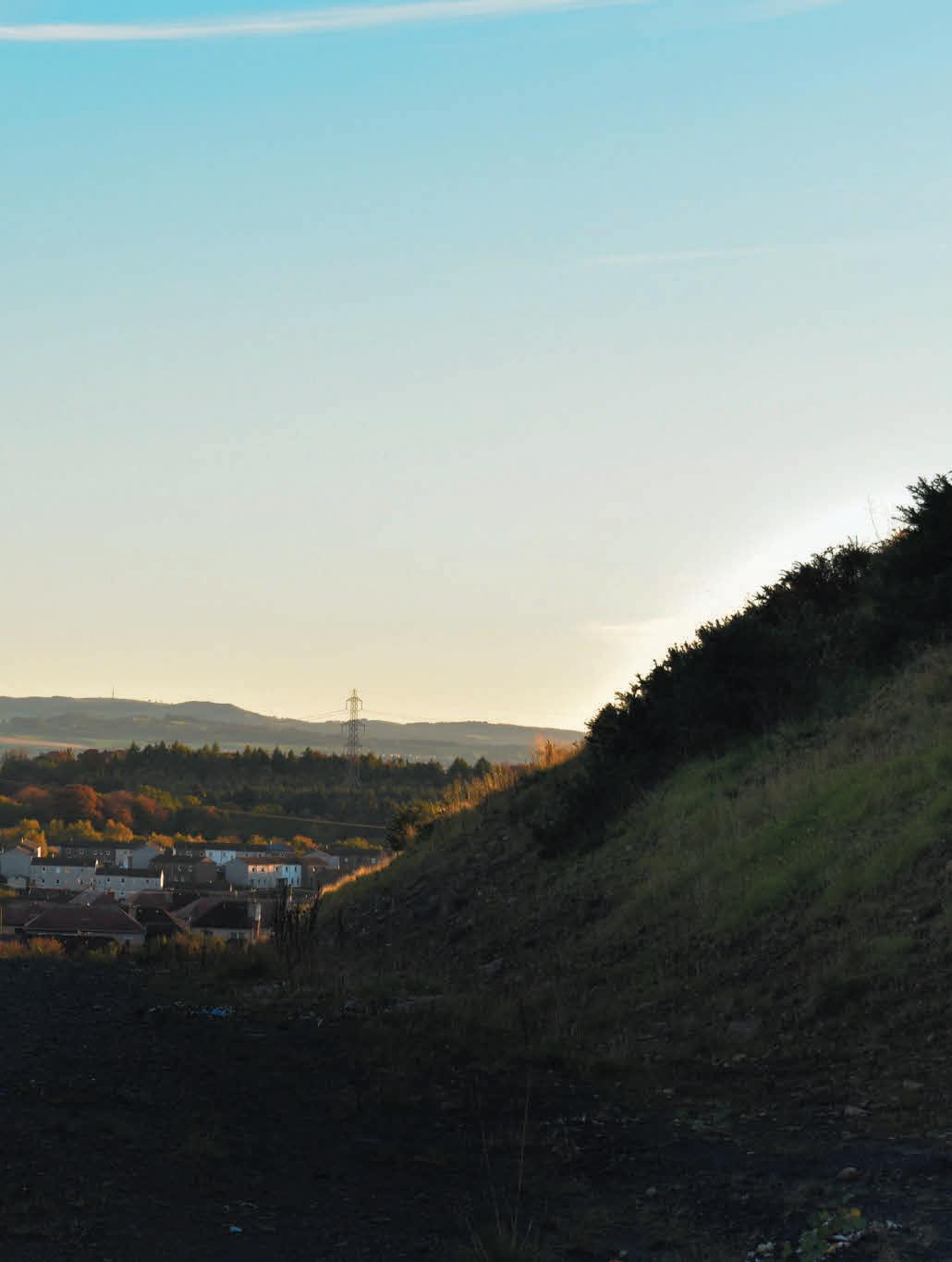
The first soirée of the Hamptons summer season promised debauchery, compromised marriages and most importantly, jag juice. Heartbroken admirers and smug husbands compared bravado over croquet on the lawns; and mistresses and scorned wives tittered about their mutual lover’s unsavoury habits. But it was Jude Laurent-Pearlson’s premature return to society that hushed the humming partygoers to open-mouthed statues, their glassy eyes following her swish into the estate in disbelief and disgust.

“Shoulders back, mouth set, have your eyes speak before you do,” the accented voice of the French finishing-school mistress echoed in Jude’s mind, as shrill and expectant as it was a decade ago. She affectionately remembered perfecting her stoic, emerald glare at that school which would later follow her from a debutante to a wife like a tailor-made shadow.
“My, my, what a welcome this evening, I should have done this sooner!” She said brazenly to the dozens of questioning eyes as she sashayed – alone – through the double-doored entrance hastily flung open for passing socialites in the need of some adulterated fun. Hopefully he had heard her. She was already a little tipsy from the bottle of Dom Pérignon she drank on her commute. As always, she caused a frenzied, envious controversy with her ensemble; the sleeveless, blueblack velvet tucked into black palazzo trousers, far too insulating for the balmy parties of ’24, and the
ostentatious, navel-length string of pearls complemented by the diamond-and-sapphire princesscut drop earrings. It would be vulgar on anyone else.
All from her late bootlegger husband, a separate controversy in itself. Apart from the locket, of course. She quickly checked that the pearls still covered the incriminating chain, holding the photograph of she and her one true love, Charles Ledger: the evening’s host. Married, he may be, but they had loved each other before his English bride had thought of setting foot in Manhattan. It had been exhilarating having an affair, but since Beau had inconveniently died, she was now, distastefully, the other woman.
She hadn’t been given this much attention since her high-brow society wedding six years prior. Granted, it wasn’t exactly the attention one desired, but that is what is to be expected when one accidentally describes themselves as “newly-single,” in lieu of “recently, and tragically widowed.” Jude’s brief, but significant period as Mrs. Beau Alexander had not only unified the Laurent-Pearlson and Alexander dynasties; it made hers the most coveted, envied, and feared name to have in your address book. Her tousled liquorice curls were windswept from hurtling Beau’s opentop, cream Tipo from the city’s euphoric speakeasies to the sprawling Hamptons. Her head was spinning, her face flushed. She felt giddy, unsteady on her feet. Pausing in the mirrored foyer to reimagine her updo, she held the uninviting eye of a society wife who had practically fried her telephone line when she had been an Alexander. As a –reluctant – debutante, Jude had always been approached with caution. Seen still as a vessel for modern, feminist ideas, she was
treated more like an unsightly patterned carpet that an enlightened woman. Her cheekbones alone cut through the dreams of any they encountered. She made unassuming suitors sweat, she was never seen to blush, nor accept a gift from an admirer. Except for Charles, who seemed to be making himself conveniently scarce this evening. She had never been popular, but her family name always ensured she was on the list of the most exclusive parties, this one included. Her parents sobbed with relief when Ivy-leaguerturned-aristocratic-bootlegger
Beau Alexander agreed to tame their silently rebellious daughter through their marriage arrangement. He thrived in challenges; they wanted anyone willing to give her an ounce of a good reputation, and that is exactly what she got. Not love nor happiness, but a reputation that the Astoria’s would have sold their wealth for. Her platonic, childless marriage allowed her to nurture and coo her affair with all of the passion in her body. She was not a materialist by nature, but the locket given to her by Charles was her most prized possession. It contained the woman she wanted to be, flanked by the right man.
And now, a mere month after the brutal murder of her husband, Jude was back in society, her maiden name unconventionally in tow. Pouring herself a scotch from behind the bar and clinking her rocks glass off the
cocktail-shaker in the hands of the barman, she sidled through the gathering onto the crowded dancefloor, holding eye contact with any whispering guest who dared. Swishing into the dancing crowd, she stumbled giddily over feet and landed in the arms of many a blurry, but handsome men as jazz pulsated through the estate’s foundations. ***
She was still dancing wildly as the alcohol began to wear off and a dull, deep ache settled in her feet. She must have been dancing for hours, given the exhausted partygoers sleeping in the scattered chaise lounge. Stumbling to a mirror to fix her hair and smudged makeup, it took her a moment to notice that her neck was bare. She clutched and tore at her neck, maybe she was just too drunk to feel it. Of course it was there, it had to be. She gasped helplessly to get air into her lungs – her throat was closing. Her head was spinning again, but this time, not because of the alcohol. Nobody could know about her and Charles, she had to find the locket. A primal sob escaped her, but nobody around her was sober enough to notice. She hadn’t felt like this since Charles told her he had to marry Julie Scott of Surrey. And now, she had lost the locket in Charles’ own home. What if somebody had it? She looked around the room desperately, trying to sober up and grasp reality once more. She fell to her knees and her clammy hands felt blindly through the crowd, her muscles cramping in anxiety. The bloodcurdling scream from the foyer sobered Jude up immediately. Jude’s blood ran cold, her stomach heaved, and her senses numbed as she turned to see the open locket in gripped in the delicate hands of a frenzied Julie Scott-Ledger, venomous blood in her eyes.
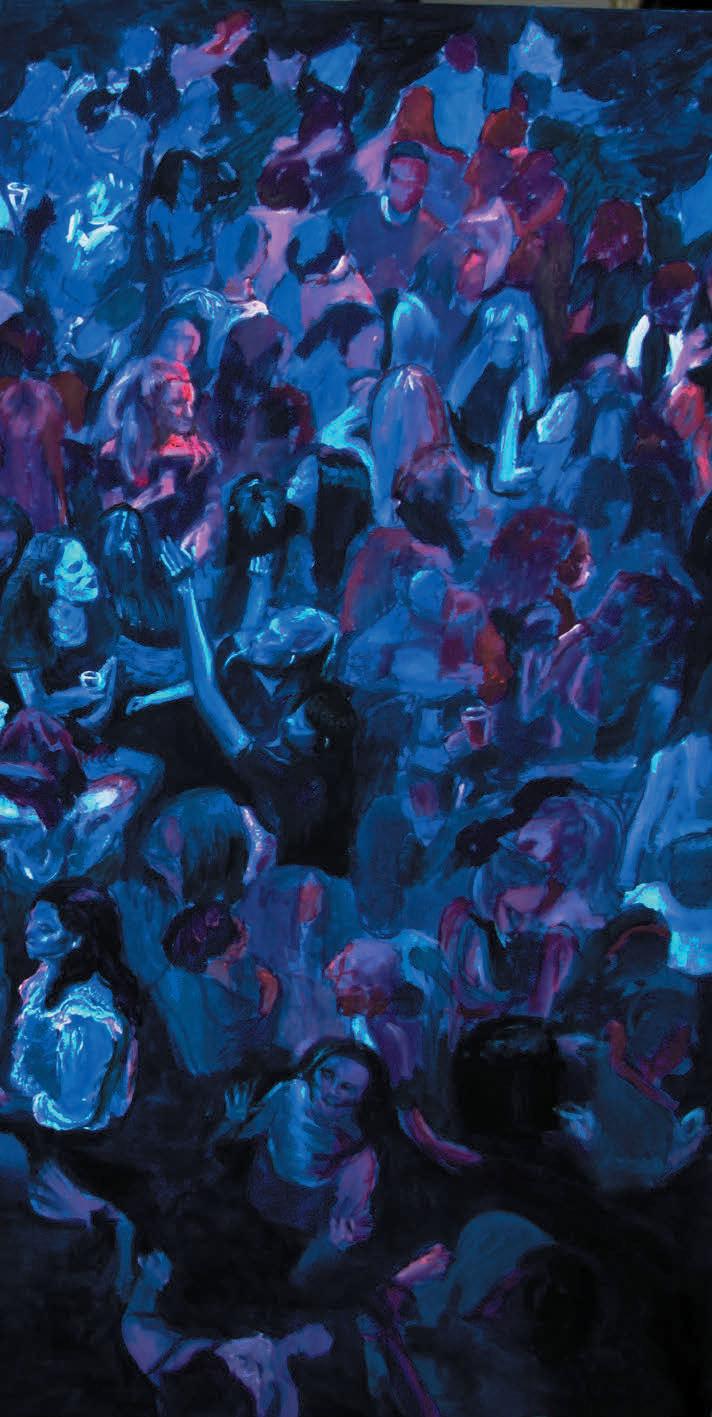

Interested in submitting your artwork or writing to the Inkwell? Want to take part in writing workshops and other society socials?
Follow us on our social media channels to hear all the latest updates for The Inkwell, and our other society events!


@publishedinburgh
PublishEd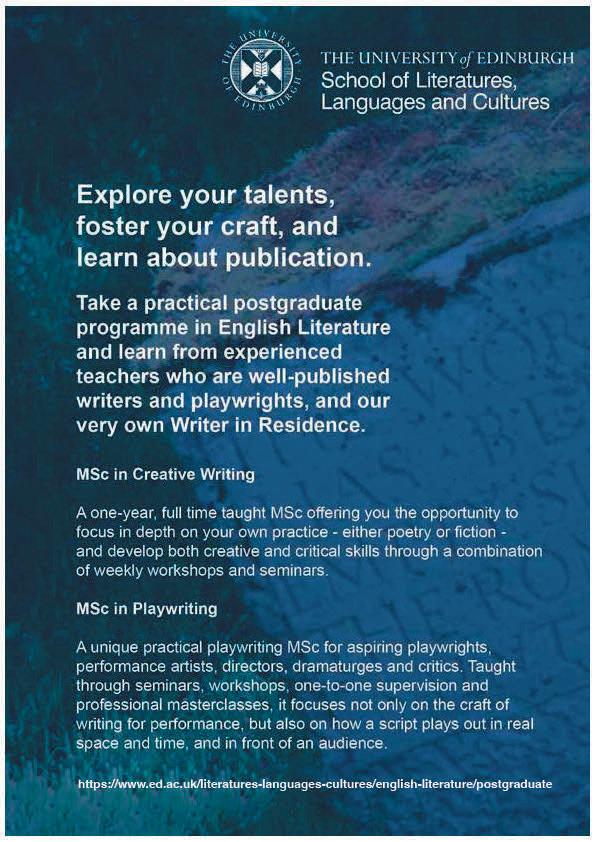
Poetry, Prose; Ashley Byrne, Callum Osment, Dalia Impiglia, Orestis Michaelides, Toby Appleyard. Artwork, Photography; Anna Hannola, Callum Osment, Laura Hegarty, Ruby Mitchell, Sourya Patnaik

